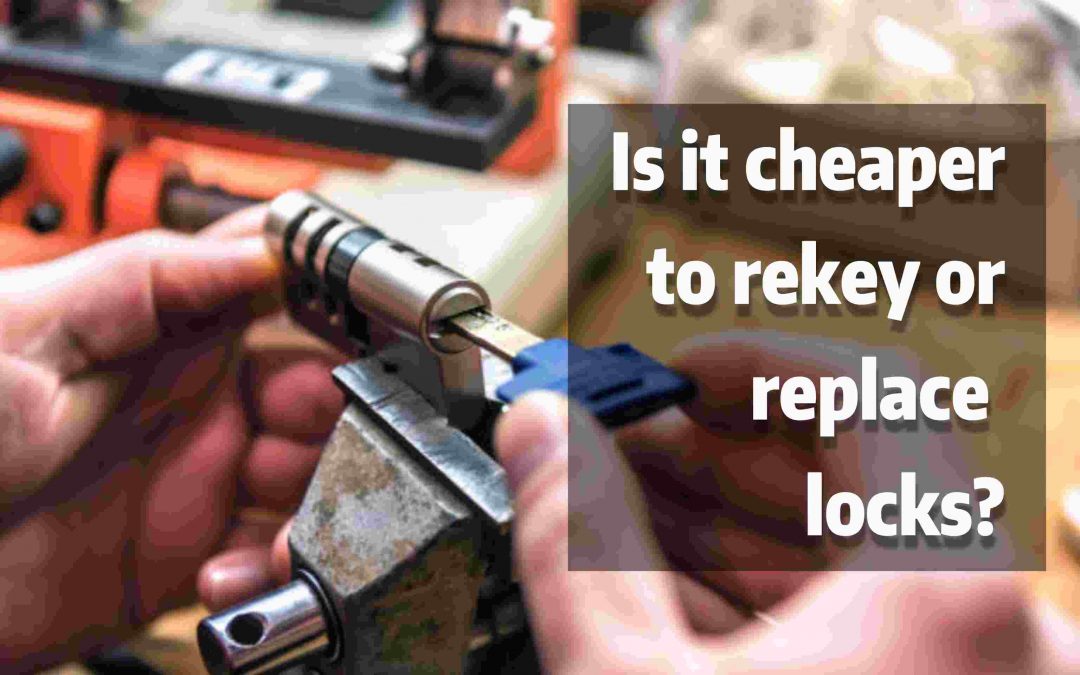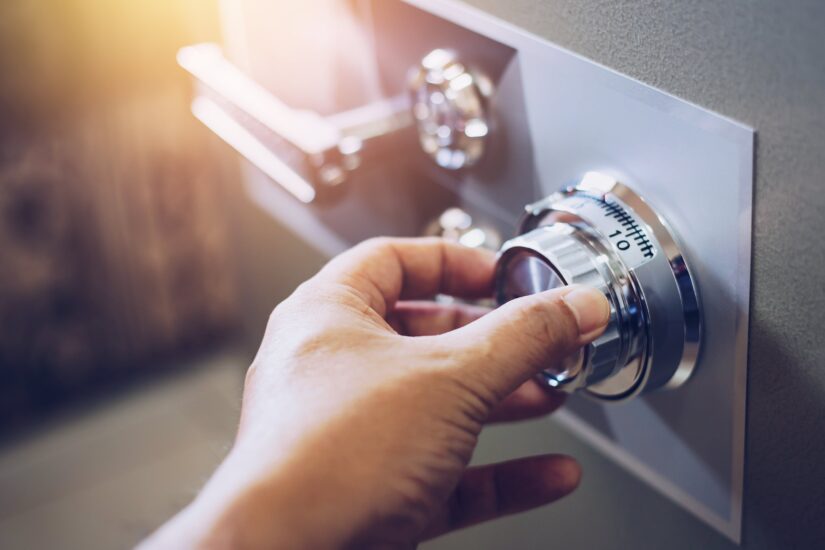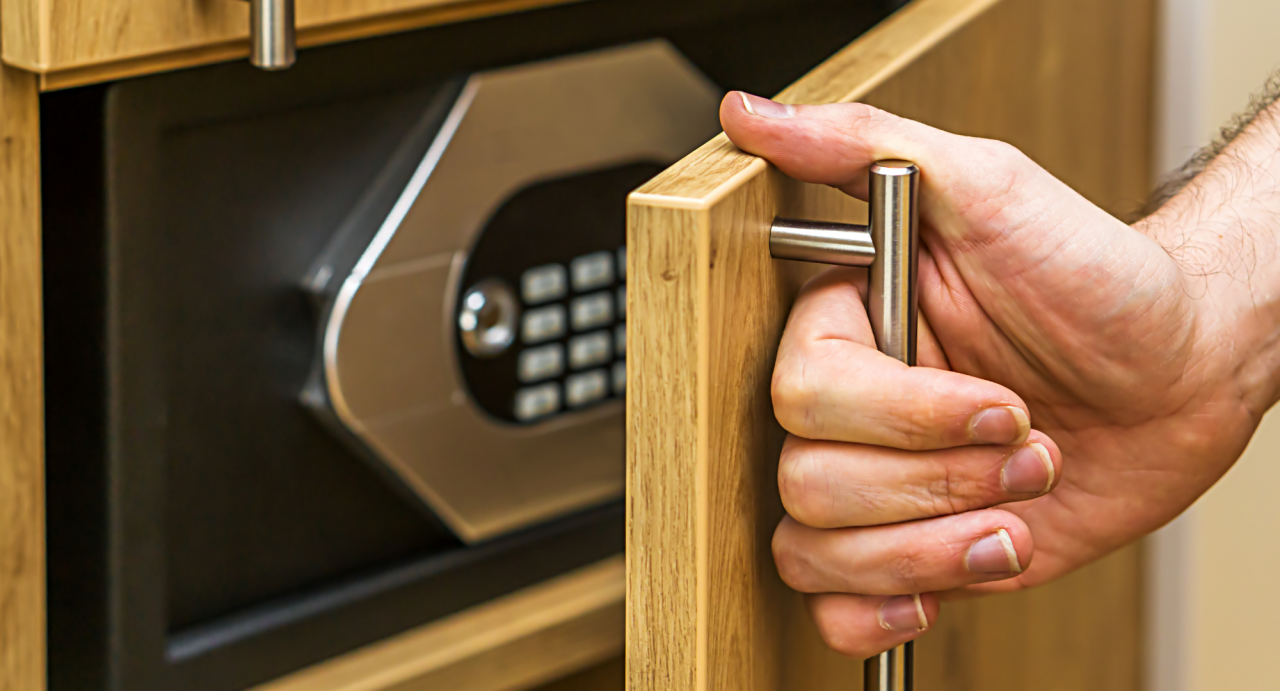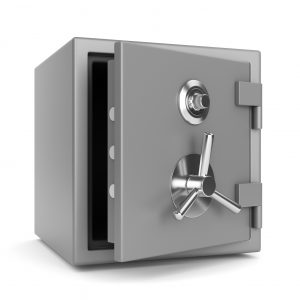Making the Best Choice for Your Home or Business Security
When it comes to securing your home or business, the decision of whether to rekey or replace your locks is an important one. Not only does it affect your security, but it can also have a significant impact on your budget. In this comprehensive guide, we’ll explore the key differences between rekeying and replacing locks, helping you make an informed decision.
What Does Rekeying a Lock Mean?
Rekeying a lock is often a more cost-effective alternative to replacing the entire lock. This process involves changing the lock’s internal components to ensure that a different key operates it. In essence, it’s like giving your existing lock a new set of keys without changing the lock itself. Rekeying is a relatively straightforward procedure that typically takes only a few minutes with the right tools.
To rekey a lock, a locksmith must have the existing matching key. Without it, rekeying may require lock picking, incurring additional charges and potentially making lock replacement a more economical choice.
Rekeying doesn’t compromise the security of the lock as long as the same number of pins is maintained. If you’re seeking enhanced security, replacing your locks with high-security options may be the better choice.
Rekeying vs. Replacing: Cost Considerations
Rekeying is generally more affordable than replacing locks, as you only pay for the labor involved. Lock replacement involves both labor and the cost of new hardware. Locksmiths often advise rekeying when existing locks are in good condition.
It’s essential to note that most locks are designed with rekeying in mind, so you won’t have to worry about their rekeying compatibility. However, the process may vary depending on the lock type and brand. Some high-security locks may require unique tools and key pins for rekeying.
When to Rekey Your Locks
1. You Want to Change the Key: Rekeying is ideal if you want to invalidate the old key for security reasons. This is common in situations where you’ve moved into a new home, lost a key, or want to prevent unauthorized access.
2. Matching Multiple Locks: If you have several locks with different keys, and you’d prefer the convenience of a single key that works for all, rekeying the locks is a practical solution. Note that the locks should be of the same brand or have the same keyways to make them compatible for rekeying.
When to Replace Your Locks
1. Aesthetic Reasons: If you desire a change in the appearance of your locks, replacing them can provide you with the opportunity to upgrade the design or color of your locks.
2. Security Upgrade: When looking to enhance security significantly, replacing your locks with high-security or electronic options is the better choice.
3. Lock Brand and Compatibility: If you have locks of different brands and wish to use a single key for all, you’ll need to replace some locks to ensure they share the same brand or keyway, enabling you to rekey them all to a single key.
Can You Rekey Your Locks Yourself?
Rekeying a lock requires not only knowledge and practice but also specialized tools, which can be expensive. While changing a standard residential lock can be a DIY project with a Phillips screwdriver, rekeying should be left to professionals. Some newer locks offer user-friendly rekeying options, but they may have limitations, and if not done correctly, they can damage the lock.
In summary, whether it’s cheaper to rekey or replace your locks depends on various factors, including the condition of your locks, your specific security needs, and the number of locks involved. Always consult a professional locksmith, such as 1st Choice Locksmith, to assess your situation and provide expert advice on the best course of action for your home or business security.
For all your lock installation & repair, rekeying, and security needs, trust the experts at 1st Choice Locksmith. Our certified locksmiths are here to ensure your property’s security is in top shape. Contact us today for professional locksmith services tailored to your requirements.






